Introduction
The holy grail for many skiers is a boot that can do it all. This is the proverbial unicorn; uphill like a slipper dancing on stardust wafting to the peaks. Get to the top, flip a switch and it becomes a downhill weapon; crushing steeps, slaying pow and dropping pillows with the strength of a professional burrito-eater's flatulence yet with the finesse and control of Baryshkinov.
Well let me cast cold water on your dreams. Such a boot does not exist; all (touring) boots are about compromises.. This is a review of the Atomic Hawx XTD Ultra XTD 130. It's the highest end of Atomic's new freeride touring lineup; boots that are geared towards "blurring the line between all-mountain and freeride touring" boots. The Hawx XTD is very good and indeed, is a contender among the category of one boot that can do it all. To summarize, this is an extraordinary ski boot; not only because it balances the necessary compromise between uphill and downhill performance so well but also because it's so remarkably easy to customize to fit.
Some required reading about touring boots and why critical self-examination is the primary factor in boot shopping follows.
- A 2013 general article about what boots to buy (originally on TGR but craptastic TGR front page photo links are dead)
- A 2016 general article from Wildsnow about what boots to buy
- TGR forums AT boot comparative flex thread distilling collective input about AT boot flexes

_____________________________________________
About the reviewer
At just 160 pounds I'm not a big guy but do spend 100+ days a season skiing, with most of those days in backcountry. I've had 25+ days on the Atomic Hawx XTD in size 27.5 (bsl 312mm) with almost all of the days spent in either backcountry of Whistler, the Duffey and the B.C. Interior with some inbound resorts soft-skiing day. My skiing is usually in high moisture-content snow. Accordingly, my preference is for bigger skis and relatively stiff boots.
I currently ski on Dynafit Vulcans and Scarpa F1 Evo boots but have had experience with a wide variety of boots. If you have questions about one boot versus the Atomic Hawx Ultra XTD 130 (aka Hawx XTD), please ask in the comments or on the following discussion threads in the NS forums (boot designer Matt Manser is on there to answer questions) or TGR forums.
- NS forums - http://www.newschoolers.com/forum/thread/849965/Hawx-Ultra-XTD
- TGR forums - https://www.tetongravity.com/forums/showthread.php/308381-Atomic-Hawx-Ultra-XTD-aka-Hawk-Extended-aka-HawX

Boot testing on the Joffre Glacier where my feet were warm and toasty in the Hawx XTD
_____________________________________________
Specifications
An important number most touring boot consumers look at stiffness. The Hawx XTD has a 130 flex rating putting it in the category of fairly beefy boots.
Another thing that consumers look for is weight. In the tested 27.5 boot the total boot weight was 1445g (including the in-box volumizer and the removeable boot spoilers). Weights broke down as such; Shell - 1147g; Liner + OE footbed - 292g; spoilers - 25g. For weight weenies if you remove the forefoot buckle and remove the Powerstrap you lose another 105g for a total boot weight of 1340g. Going with an Intuition ProTour liner further dropped another 65g for a theoretical weight of 1270g.
I did ski the Atomic Hawx XTD with its stock liner and mostly with all included hardware but then switched to an Intuition liner as I developed blisters (disclosure is that I am an Intuition fanboy) so most of the time I used the Hawx XTD it was at a 1380g weight configuration
Other notable elements of the Hawx XTD spec are as follows:
-Classic overlap boot design
-External mechanical walk mode engagement on a lever
-54° of cuff mobility
-WTR soles (useful EVO article about boot binding compatibility). Not replaceable
-15 degree forward lean adjustable to 17 deg forward lean (walk mode blocks to allow the boot to be configured to a more upright 13 deg forward lean will be available for sale "soon")
-Forefoot buckles are removeable
-No cuff canting mechanism
-Last width 100mm (increases and decreases 2mm every boot size)
-Retail price suggested USD 800
Throughout the Hawx XTD lineup sizing for men is 24/24.5 - 29/29.5. Sizing for women is 22/22.5 - 27/27.5
Update from Atomic's Matt Manser
Check in with your local Atomic retailer and have them order the "XTD Free/Lock Base Plate 13/19", part number AZE001416. This just recently became available and using this piece instead of the stock one will allow you to make the boot 2 degrees more upright (from 15 to 13 degrees).
You unscrew the ski/walk mechanism, remove it, and remove the silver colored base plate from inside the cuff. Use this new base plate with the 13 degree setting in the (you'll know it's the 13 degree setting because you can read it, other wise it would read 19). Attach everything and re-tighten.

With the Hawx XTD you get laces for the liner, spoiler (in case the 17 deg forward lean is not enough) and a thin volumizer to take up some space. Note the wide fairly beefy looking powerstrap

WTR soles pictured and a scale shot with Intuition liners
_____________________________________________
Construction
The Hawx XTD 130 is a standard overlap shell design with "Energy Backbone" construction (reinforcements at spine) to promote stiffnes. The walk mode is a beefed up version of what's already been shown to work very well in the Atomic Backland; idiot-proof, easy to engage with gloves, and mechanically very stiff. Materials used in the lower cuff is Grilamid plastic; a type of plastic known for lightness, strength and consistent performance throughout temperature ranges. Grilamid is also expensive which explains why only the cuff of the Hawx XTD 130 (and the highest end women's version - the 110W) are made of plastic. All other Hawx XTD versions (120, 100 and 90W have PU - polyurethane cuffs.
Showing the boot designers mountainbiking background are (close to) frictionless IGUS bushings in the cuff pivot hardware . This makes for smooth touring action and user-serviceability. No cuff-canting hardware is provided and Atomic suggests using MemoryFit or standard boot-fitting techniques to correct for misaligned feet (more on that later).
All Hawx XTD models use an integrated Walk-to-Ride ("WTR") rubber sole incorporating rubber grip lugs at toe and heel piece but with solid smooth gliding-pad surfaces at locations adjoining a ski binding's anti-friction device ("AFD"). Soles incorporate tech-fittings and are not replaceable. From a technical perspective WTR is a standard originally defined by Salomon but cross-pollinated to sister AMER brand Atomic and based on a DIN standard ((ISO 9523) to obtain a TÜV-approved safe release. Atomic deliberately chose the WTR interface thereby sacrificing a bit of grip for walking on rocks or snow in order to maximize precise engagement and precise release at the boot/binding interface (AT boots = compromises. Remember?)
The world of ski binding interfaces can be complicated so please reference this very useful EVO article in deciding what binding to marry to the Atomic Hawx XTD's WTR sole interface. The bottom line is that the Hawx XTD will play fine with tech touring bindings. It will still be compatible with certain alpine bindings. The tricky thing is determining which alpine bindings will work. It will work with certain AT frame bindings (Warden, Marker Duke, Marker Griffon ID, etc.). It does not fit standard alpine bindings (Z-series, X-series, Lithium, Mercury, etc.) nor Grip Walk bindings.

Front bellows of the Hawx XTD do not let in snow unless you weight - weenie and take off a forefoot buckle. Ladders allow for micro-adjustment

Two forefoot buckles are removeable with 3mm hex

IGUS bearings used in user-serviceable frictionless cuff pivot

Walk mode is beefy. Out of box this is set at 15 deg forward lean. Flip the chip behind the walk mode to adjust to 17 deg forward lean

Classic overlap design at forefoot. Rear cuff pushes against a reinforced Grilamid plastic spine. Bootboard removed

Comparisons are inevitable with current market leaders - side by side from L to R - Salomon Freeski Mtn Lab,Dynafit Vulcan, ATOMIC SKIING Hawk Ultra XTD

In my dedication to boot testing- skioff between the Mtn Lab vs Hawx XTD Ultra XTD
____________________________________________________________________________________
Fit
Generally the Atomic Hawx XTD lineup has a narrow'ish heel pocket and a fairly low the instep height. These biases are for performance (compromises remember?) and required to keep the heel in the heel pocket.
I have a generic Azn foot; ie no arch; a big tumour on the met and a splayed out forefoot meaning I need to somehow get 110mm of forefoot into a 100mm (27.5 size). As another fitting data-point I am a size 27.5 Backland, Dynafit (even the tiny volume TLT5) and a size 27.5 for all Scarpas. I am a size 26 in Tecnica and Salomon. Despite the rather alarmingly large delta between my wide feet and the narrow-ish, small-ish volume Atomic Hawx XTD 130 I was able to get a comfortable, nice performance fit with just MemoryFit and a minor forefoot boot punch.

My fugly skiers feet
______________________________________________________________________________
Memory Fit is the magic which is going to make bootfitters and many touring boot consumers ecstatic.It's not new technology already having been deployed in Atomic's line of alpine boots and is heat-fitting allowing the boot to conform to your foot; in shell, cuff and liner. MemoryFit does require that a dealer have a boot oven and know how to cook the Hawx XTD but it works exceptionally well. The entire exercise on my bootfit took approximately 30 minutes (including some tweaks) and was via the Atomic-recommended "alpine" style of MemoryFit (ie remove liner, heat the shell for 5 minutes, insert liner, memorize for 2 minutes, cool for 5 minutes). A quick note that it is possible to Memory Fit the Atomic liner on its own. you can heat the liner on a hot-air blower for 15 minutes or in a Memory Fit oven for 3-4 minutes.
Pre-fit I felt pressure at both sides of the forefoot. Following the thermomold process I obtained expansion of 5mm in the boot shell and approx 5mm in the liner; which is pretty close to what I needed..

Getting the MemoryFit.

Removeable bootboard allows for an even more dialed fit (bootfitters can grind; apply pads etc)

In Whistler, we are blessed with a variety of shops to get a good fit on boots. One such shop is Escape Route

Another Whistler shop providing backcountry boot advice and custom-fitting needs is Comor Whistler. Tom P is one of many resident boot gurus there
_____________________________________________
Uphill and Touring performance
The Hawx XTD's 54° range of motion breaks down to 44° to the front and 10° to the back. In my experience having a bit of rearward mobility helps tremendously in flat approaches (roads, glaciers etc). What is even more noticeable is "useable" ROM. Boots which theoretically have lots of ROM can be hampered by friction in the cuff mechanism restricting the ROM. Fortunately the Hawx XTD is a boot with useable ROM; the relatively frictionless IGUS cuff bushings no doubt helps in this regard.
For a boot in this category, touring is remarkable. I found performance to be best and the stride to be the least hampered when slackening buckles off all the way and loosening the powerstrap. Conversely ROM is reduced when buckles and powerstrap were in ski mode then simply loosened without being slacked iff all the way). This does mean that transitions are additionally complicated by requiring the extra process of slackening buckles if one is to benefit from a free ROM.

Touring up to Stonecrop and the Matier Glacier - Margus Riga picture
________________________________________________
Downhill
The Hawx XTD skis wonderfully well. To be honest, any other outcome of a boot with this pedigree would be disappointing. I skied the Hawx XTD at the stock 15° forward lean (but with spoilers which may have put it at 16) and the boot felt balanced and precise. Other geometry is relatively standard with a 3° abducted stance from the heel (translates to 2.2mm in size 27.5) and a 4° ramp angle all which, of course, can be tuned via bootboard and shims. Notably for those who are very aggressive or old-school or both, Atomic allows for a 17° forward lean option as well as a new chip which allows forward lean to be tuned all the way down to 13° (purchaseable after-market).
As an added data point, I also tried the Hawx XTD without the lowest forefoot buckle as a concession to the weight-weenies. I found that the boot shell allowed snow to ingress so quickly put the boot buckle back on. I also found that removing the forefoot buckle necessitated cranking the 2nd buckle quite a bit to get a good ski fit. Cranking that buckle visually shifts the overlap a bit (not much but moreso then the other boot where all the buckles are left on the forefoot). The boot designer, Matt Manser also had this to say
"From an actual performance standpoint, 4-buckles does hold the shell together better and it allows for better fine tuning of the lower shell fit. Part of what allows our light weight shell to ski as well as it does is having 2 shell buckles holding the shell together. As soon as you remove the toe buckle, the overlap will be more free to move and twist as you ski. This will lead to a noticeable reduction in power transfer and potentially wetter feet."
Bottom line is that, to me, the weight savings doesn't make or break the boot so I left the forefoot buckles as-is.
It's difficult to express downhill performance in quantitative terms so more on the skiing aspects follows in a stream of consciousness. A good test was in chopped up 10cms of fresh snow on 20cms of previous storm snow. I had the Hawx XTD on Prior Overlords 188 (RIP Chris Prior) mounted with Dynafit Beast 16s and pointed downslope through some traverse lines and then into Blackcomb Glacier. Trying to stay centred on the skis and letting the boots do their thing I was jostled around but could maintain fore/aft stability. When I had to turn I could get low and lean laterally into the Hawx XTD and let them do their thing; again maintaining stability but this time on the sideways plane.
It's useful to compare the Hawx XTD to my personal Dynafit Vulcans and to another boot I was reviewing, the Salomon Mtn Labs as all these boots are in the conversation when people think about what touring boots will rule them all. On both the Vulcans and the Mtn Labs I would not have that same level of either stability or hit-absorption as the Hawx XTD but for different reasons. The Vulcans are not a progressive boot (with and without the tongue) and tend to hit a firm stop in a jarring fashion so particularly on fore-aft hits you will get bucked around. Without the tongue the Vulcan will fold forward on fore/aft hits. The Salomon Mtn Lab is a bit softer fore-aft so also will fold on the fore/aft hits. Where all these boots perform well is with respect to lateral stability where they reward the more modern style of driving skis on their natural arc as opposed to driving from the tips. Having said that, real world skiing conditions sometimes dictates imperfect snow. Coupled with less than Hoji-like reflexes some skiers (ie me) require that fore/aft support crutch and that's where the Hawx XTD offers that small but noticeable benefit. I'd expect that bigger skiers (especially those who like to huck or who partake in big hits) will really appreciate the added stiffness, support and progression of the Hawx XTD.
Having said that, the Hawx XTD's progression is not bottomless and I feel that will be something true to all boots having a walk mode. I can't see how one can engineer around all that complexity and the abrupt stop inherent to a rigid walk mode on a walk mode bar (which is again necessary to preserve ski boot stiffness - again, compromises!!). As alluded to above, the Hawx XTD has plenty of power available for edging and driving. However there is a limit to the depth and progression of the flex and one will find that in harder, firm or uneven snow. Finally I will note that discussions of "progression" are fraught with subjectivity and it would be incumbent on me to have Matt Manser, the boot designer, address that in the following quote. It is then up the consumer to decide.
Re: progressive flex/stiffness - This is an interesting topic to dive into. On paper/robot measured (see this article), we are very progressive with a slightly stiffer feel "off the top" compared to boots in this category (and against full PU alpine boots). But very progressive, not linear. For me personally (which mirrors our robot flex data), I find the Zero G to be super linear, super soft, and hard to control. So if testers like the way the Zero G feels, this will feel very different, almost harsh in comparison. And vice versa for those who don't like the Zero G. On one hand, there is a way to measure objectively how a boot flexes but then there is an equally real yet very subjective feel to each boot. I don't think one is truly more right or more wrong, but just good to be aware of.

Do you know how hard it is to take a picture of a ski boot when skiing in powder snow? Joffre Lakes area
______________________________________________________
Other Hawx XTD models
Atomic kindly also provide other details about the other boots in the Hawx XTD lineup and the following note so that one can determine which boot in the lineup to buy. In general, wherever you have a plastic component, you can change its hardness and therefore the flex. Given that a more stable shell will result in better skiing Atomic tries to use a stiffer shell compared to the cuff. Then in the cuff, Atomic engineers the the rear spine to be stiffer than the main component of the remainder of the cuff thus preserving maximal stiffness to the extent possible given material limitations.
Accordingly when Atomic builds the range of boots, the top model 130 will use the stiffest shell and stiffest cuff combination. In the case of the 120, it uses the same hardness lower shell as the 130, but the cuff spine and cuff main component are softer and we switch to race-grade PU (this yields the 10 point flex difference). And when we make a 20 point jump down to the 100, we need to use a softer cuff spine, softer cuff main component, and softer shell all to get a softer boot.
130
130 shell (Grilamid)
130 cuff (Grilamid)
120
130 shell (Grilamid)
120 cuff (PU)
100
100 shell (Grilamid)
100 cuff (PU)
Quick model distinction:
130 flex
Grilamid shell
Grilamid cuff
Platinum liner (Backland on steroids construction, light, moldable, and breathable)
50mm power strap
1420g / 26.5
120 flex
Grilamid shell
PU cuff
Gold liner (same fit & construction as Platinum, but not breathable)
50mm power strap
1470g / 26.5
100 flex
Grilamid shell
PU cuff
Silver liner (alpine construction with touring flex zone)
40mm power strap
1586g / 26.5
For the US, 130 = 799$, 120/110W = 699$, 100/90W = 599$
- Merchant Sale Price Retail Price
-
 OMCgear $849.95 Atomic Hawx Ultra XTD 130 CT GW
OMCgear $849.95 Atomic Hawx Ultra XTD 130 CT GW -
 OMCgear $799.95 Atomic Hawx Ultra XTD 115 W GW
OMCgear $799.95 Atomic Hawx Ultra XTD 115 W GW -
 OMCgear $699.99 Atomic Hawx Ultra Xtd 100 Ski Boots
OMCgear $699.99 Atomic Hawx Ultra Xtd 100 Ski Boots -
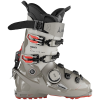 evo $949.95 Atomic Hawx Ultra XTD 130 BOA GW Alpine Touring Ski Boots 2025 /Plastic in Gray size 29.5 | Polyester/Plastic
evo $949.95 Atomic Hawx Ultra XTD 130 BOA GW Alpine Touring Ski Boots 2025 /Plastic in Gray size 29.5 | Polyester/Plastic -
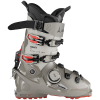 evo $949.95 Atomic Hawx Ultra XTD 130 BOA GW Alpine Touring Ski Boots 2025 /Plastic in Gray size 28.5 | Polyester/Plastic
evo $949.95 Atomic Hawx Ultra XTD 130 BOA GW Alpine Touring Ski Boots 2025 /Plastic in Gray size 28.5 | Polyester/Plastic -
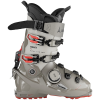 evo $949.95 Atomic Hawx Ultra XTD 130 BOA GW Alpine Touring Ski Boots 2025 /Plastic in Red size 27.5 | Polyester/Plastic
evo $949.95 Atomic Hawx Ultra XTD 130 BOA GW Alpine Touring Ski Boots 2025 /Plastic in Red size 27.5 | Polyester/Plastic - Show More
Shop For Atomic Hawx Ultra XTD
- Merchant Sale Price Retail Price
-
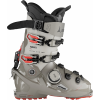 MEC Mountain Equipment Company Ltd $1099.95 Atomic Hawx Ultra XTD 130 BOA GW Ski Boots - Unisex
MEC Mountain Equipment Company Ltd $1099.95 Atomic Hawx Ultra XTD 130 BOA GW Ski Boots - Unisex -
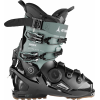 MEC Mountain Equipment Company Ltd $999.95 Atomic Hawx Ultra XTD 115 BOA GW Ski Boots - Women's
MEC Mountain Equipment Company Ltd $999.95 Atomic Hawx Ultra XTD 115 BOA GW Ski Boots - Women's -
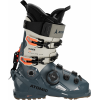 MEC Mountain Equipment Company Ltd $999.95 Atomic Hawx Ultra XTD 120 BOA GW Ski Boots - Unisex
MEC Mountain Equipment Company Ltd $999.95 Atomic Hawx Ultra XTD 120 BOA GW Ski Boots - Unisex -
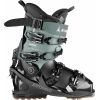 MEC Mountain Equipment Company Ltd $629.94 $899.95 Atomic Hawx Ultra XTD 115 GW Ski Boots - Women's
MEC Mountain Equipment Company Ltd $629.94 $899.95 Atomic Hawx Ultra XTD 115 GW Ski Boots - Women's -
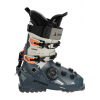 PRFO Sports $999.99 Atomic Unisex Hawx Ultra XTD 120 Boa GW Boots
PRFO Sports $999.99 Atomic Unisex Hawx Ultra XTD 120 Boa GW Boots




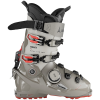
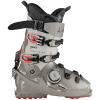
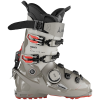
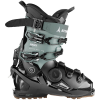
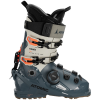
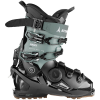
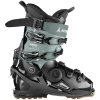
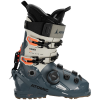
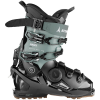
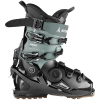
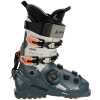
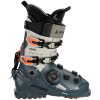
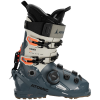
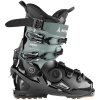
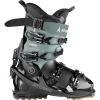
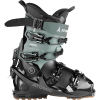

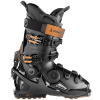
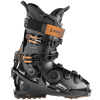
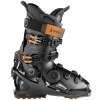
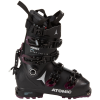
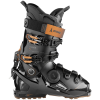
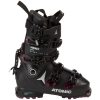
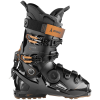
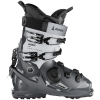
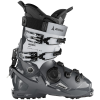
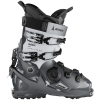
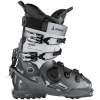
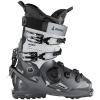
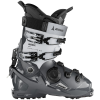
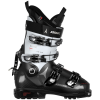
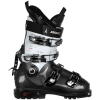
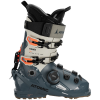
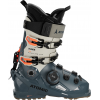

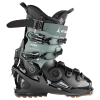
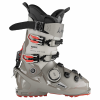
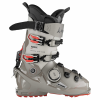
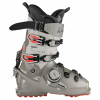
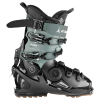
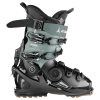
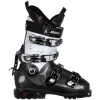
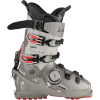
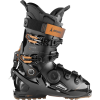
Comments